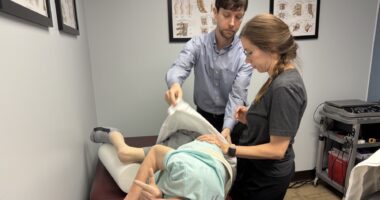Virtual Assistants Can Offer Independence but Not Privacy


Have you ever felt like there could be someone spying on you by listening to your private conversations? Well, perhaps that sensation is being caused by your virtual assistant.
Yes, I’m talking about those helpful little devices that sit on the corner of the table or dwell in your smartphone’s software, awaiting your next command.
Such devices have become a household staple. Many of us don’t think twice before calling out the name of our electronic assistant when we’d like their help completing some task or another.
New technology, newfound independence
For those of us in the SMA and disability communities, such devices are especially helpful. Many of us lack the strength and mobility needed to independently perform even the most basic activities of daily living. Using our voices to instruct a computer to do things for us has granted us a kind of independence and freedom that was unobtainable before this technology’s existence.
Now, chores and pastimes that previously required assistance from another person can be independently carried out with a simple voice command. We can use these devices to control lights, electronics, and appliances, receive and send correspondence, access entertainment, and more.
Personally, I get the most use out of my Alexa device while lying down. Outside of my wheelchair, my mobility is largely reduced to my fingers. While there is always a family member or caregiver nearby to help, any means of independent function are limited to what I can do with my touchscreen phone and Alexa.
And that’s actually a lot. Between the two, I can control my television, listen to music, play games, access the internet, and communicate with people around the globe. All I have to do is speak a command or tap a few keys. That’s pretty impressive.
An unpleasant surprise
Alas, technology is rarely without its downsides. Imagine my surprise when I read this Fox News article my mom sent me that advises against keeping an Alexa device in your bedroom. The reason? Because it might be recording you even when you aren’t talking to it.
Thankfully, the article provides instructions on how to deny the company access to recordings and require the device to immediately delete them. But because I’ve always kept my device activated, I’ve unknowingly consented to being recorded for data collection in my bedroom up until this point. And keeping the device elsewhere would severely inhibit its usefulness.
We all know mishaps occur with technology. If we’re lucky, the situation might be humorous, like when SMA News Today columnist Kevin Schaefer’s Alexa struggled to understand him while he wore his BiPAP. This led to an amusing change in how he uses his virtual assistant.
Or it could pose unnecessary challenges. This was the case for another SMA News Today columnist, Brianna Albers, who recently wrote about her frustrations with the latest Android update, which negatively impacted the phone’s accessibility features.
My situation, however, isn’t amusing, and it’s more than a frustrating obstacle. It’s an invasion of privacy, and I already have so little of that.
Alexa, please respect my privacy
Life with SMA requires a sacrifice of privacy on a scale that’s probably hard for most to understand. The health and hygiene of disabled individuals is often dependent on another person. This includes even the most intimate of activities like bathing, dressing, and using the restroom.
Like it or not, receiving quality care requires us to forfeit our right to privacy, sometimes to complete strangers. If we held on to it, our health and hygiene would suffer. This sacrifice is the lesser of two evils.
It often puts us in a very vulnerable position, though. We have to fully allow people into our homes and lives to care for us with faith that this privilege won’t be disrespected or taken advantage of. Again, some of these people are strangers. And sadly, not everyone will prove to be empathetic or respectful.
There sometimes seems to be a misconception that disabled people shouldn’t mind going without privacy — or worse, an expectation that we should give up just a little more — because we’re used to it. This is entirely untrue. Everyone’s privacy should be regarded with the utmost respect, and we are not an exception.
Doing right and eliminating unfair choices
We all know it’s wrong to eavesdrop, so why should we tolerate data collection that compromises our privacy?
Yet without the services these devices provide, the disability community would lose independence. So maybe this is also the lesser of two evils. Regardless, that doesn’t make it right.
Certain companies and individuals have the ability to empower or oppress vulnerable populations. Whenever we find ourselves in that position, I hope we choose to exercise a level of morality that doesn’t take advantage of the situation, but instead leads us to make choices that protect and respect the people who rely on us. We all deserve that.
Note: SMA News Today is strictly a news and information website about the disease. It does not provide medical advice, diagnosis, or treatment. This content is not intended to be a substitute for professional medical advice, diagnosis, or treatment. Always seek the advice of your physician or other qualified health provider with any questions you may have regarding a medical condition. Never disregard professional medical advice or delay in seeking it because of something you have read on this website. The opinions expressed in this column are not those of SMA News Today or its parent company, BioNews, and are intended to spark discussion about issues pertaining to spinal muscular atrophy.
The post Virtual Assistants Can Offer Independence but Not Privacy appeared first on SMA News Today.


